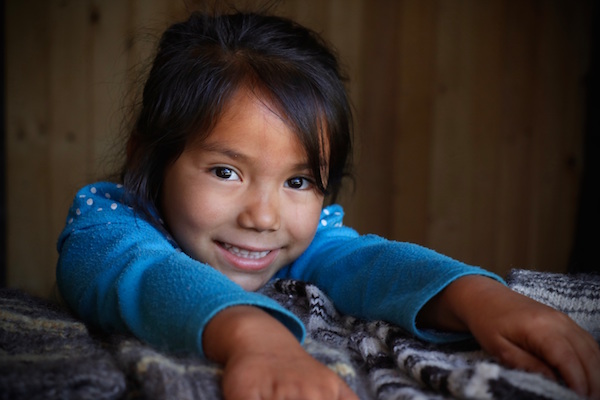In Utero
 A child’s health truly begins even before conception. If a woman is considering having children, it is recommended that she begin making the lifestyle changes needed to ensure she is healthy before conception. This includes eating healthy, exercising on a regular basis, quitting alcohol, being in a healthy weight range, and even taking a prenatal vitamin during the time she is actively attempting to conceive. Continuing into the very early stages of pregnancy, it is important to make sure the mother is taking the utmost care of herself so that her child has the best possible development in the critical stages of formation.
A child’s health truly begins even before conception. If a woman is considering having children, it is recommended that she begin making the lifestyle changes needed to ensure she is healthy before conception. This includes eating healthy, exercising on a regular basis, quitting alcohol, being in a healthy weight range, and even taking a prenatal vitamin during the time she is actively attempting to conceive. Continuing into the very early stages of pregnancy, it is important to make sure the mother is taking the utmost care of herself so that her child has the best possible development in the critical stages of formation.
Expectant mothers should also take the time to receive prenatal care from a doctor or OB/GYN. Studies show that women who receive prenatal care overall tend to have healthier pregnancies, healthier labor and deliveries, and healthier babies.
Additionally, many mental health problems have a genetic component to them. This means if Mom or Dad has a history with a problem such a depression, anxiety, schizophrenia, or addiction, this heightens the baby’s chance of also dealing with these problems later in life. By understanding the family and genetic history, parents can prepare well in advance to tackle these problems head-on and prevent crisis in the future.
Biophysical: Mother is eating healthy, cutting out junk food, abstaining from drug and alcohol use, abstaining from smoking any substances, abstaining from eating unapproved foods (such as seafood high in mercury or raw meats), drinking plenty of water, exercising regularly (as approved by doctor), receiving prenatal care, taking prenatal vitamins.
Psychological: Mother is taking steps to de-stress, is speaking with a professional if struggling with mental health problems, is excited about the future for baby.
Social: Mother has a support system to help during pregnancy and also with raising a child (such as a close knit family or supportive friends), Mother has an understanding job or is comfortable being a stay-at-home mom, child’s Father is actively involved in a positive way throughout the pregnancy.
Spiritual: Mother is excited (albeit with occasional nerves) about the prospect of having a child.
Infancy (ages 0 – 3)

 A child’s health truly begins even before conception. If a woman is considering having children, it is recommended that she begin making the lifestyle changes needed to ensure she is healthy before conception. This includes eating healthy, exercising on a regular basis, quitting alcohol, being in a healthy weight range, and even taking a prenatal vitamin during the time she is actively attempting to conceive. Continuing into the very early stages of pregnancy, it is important to make sure the mother is taking the utmost care of herself so that her child has the best possible development in the critical stages of formation.
A child’s health truly begins even before conception. If a woman is considering having children, it is recommended that she begin making the lifestyle changes needed to ensure she is healthy before conception. This includes eating healthy, exercising on a regular basis, quitting alcohol, being in a healthy weight range, and even taking a prenatal vitamin during the time she is actively attempting to conceive. Continuing into the very early stages of pregnancy, it is important to make sure the mother is taking the utmost care of herself so that her child has the best possible development in the critical stages of formation. Early childhood is when a child’s world truly begins to open up before them. Children become more independent and begin to take notice of others – such as adults and children outside of the family. Interactions with others begin to nurture their personality and shape their own ways of thinking and moving.
Early childhood is when a child’s world truly begins to open up before them. Children become more independent and begin to take notice of others – such as adults and children outside of the family. Interactions with others begin to nurture their personality and shape their own ways of thinking and moving. The child’s independence from family and focus on friendships definitely becomes more obvious during this stage. Healthy friendships are extremely important during this time, so parents should be paying attention to the crowd that their children hang out with. For girls, puberty may begin around this time – which is prime time for mental health problems to begin cropping up. If there is a history of mental health problems in the family, now is the time to discuss those problems.
The child’s independence from family and focus on friendships definitely becomes more obvious during this stage. Healthy friendships are extremely important during this time, so parents should be paying attention to the crowd that their children hang out with. For girls, puberty may begin around this time – which is prime time for mental health problems to begin cropping up. If there is a history of mental health problems in the family, now is the time to discuss those problems. Puberty is definitely in full swing for both boys and girls during this stage. 50% of all lifetime cases of mental illness begin by age 14, so if conversations surrounding mental illness have not yet been addressed, now is the time to do it. Peer pressure continues to mount during this stage as teens want to fit in yet struggle with finding their own identity. Teens may make their own choices about friends, sports, and school. They become much more independent with their hobbies and interests, although the family unit continues to be very important.
Puberty is definitely in full swing for both boys and girls during this stage. 50% of all lifetime cases of mental illness begin by age 14, so if conversations surrounding mental illness have not yet been addressed, now is the time to do it. Peer pressure continues to mount during this stage as teens want to fit in yet struggle with finding their own identity. Teens may make their own choices about friends, sports, and school. They become much more independent with their hobbies and interests, although the family unit continues to be very important. Ah, teenagers. The dreaded teen years are some of the roughest years of life, although many adults tend to forget how tough their teen years really were. With emotions off the charts due to raging hormones, the stress of academic perfection, the battle of fitting in versus being one’s own self, and an ever-looming imposter syndrome, teens have it pretty rough. What compounds the problem is hearing from adults that the teen years are the “best years of your life” – while the intent is to provide hope, often times such statements make teens feel anxious that they are not enjoying their best years, and fear that their best years are almost over. Teens that are 18+ have a conflicting sense of adulthood. They are adults by law, but oftentimes won’t find themselves living away from their parents until closer to their mid-twenties.
Ah, teenagers. The dreaded teen years are some of the roughest years of life, although many adults tend to forget how tough their teen years really were. With emotions off the charts due to raging hormones, the stress of academic perfection, the battle of fitting in versus being one’s own self, and an ever-looming imposter syndrome, teens have it pretty rough. What compounds the problem is hearing from adults that the teen years are the “best years of your life” – while the intent is to provide hope, often times such statements make teens feel anxious that they are not enjoying their best years, and fear that their best years are almost over. Teens that are 18+ have a conflicting sense of adulthood. They are adults by law, but oftentimes won’t find themselves living away from their parents until closer to their mid-twenties.